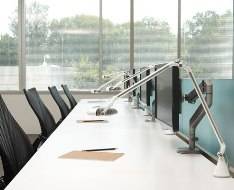October 29, 2013
‘Beleaguered’ UK workforce is poorly motivated and unproductive
UK workers are lacking motivation and job satisfaction, with over half either feeling neutral or unhappy about going to work most days, only one in four very satisfied with their jobs and 20 per cent who dread going to work. According to a new report, ‘The Forgotten Workforce’ a series of blows to UK workers, including cuts to their working hours, increasingly inconsistent working patterns, pay freezes, and introduction of zero hours – coupled with little or no investment in technology to support employees – has led to a UK workforce lacking morale and disengaged from the business. An efficient business needs an efficient workforce. If this cycle continues, businesses will face increasingly poor productivity and the UK economic recovery will suffer warns the report. More →




























October 25, 2013
Only culture change will prevent the sexual harassment of people at work
by Pam Loch • Comment, Legal news, Workplace
Are we dangerously unaware of or perhaps even becoming dismissive about the nature and extent of sexual harassment in the workplace today? A recent survey, commissioned by a firm of solicitors, has thrown up some statistics which point to significant levels of harassment being experienced by both men and women at work. In the poll of 1,579 working people 60 per cent of women and 40 per cent of men reported that they had experienced “inappropriate” behaviour with much of it classed as persistent, degrading and embarrassing. The behaviour that most people complained about involved some degree of unwanted physical contact but also included colleagues watching pornography in the workplace.
More →